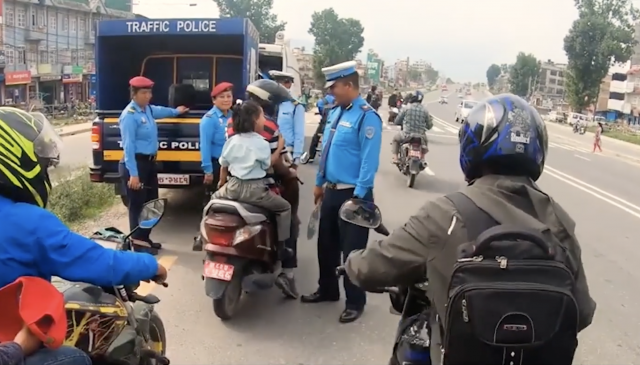Two-wheelers are integral to basic transportation for most people in Nepal.

Motorbikes save time and money for average Nepali citizens, small businesses and entrepreneurs, serving as an efficient means for work and school commutes, ridesharing, goods transportation, and other daily necessities. For legal access to motorbikes, Nepalis must have driver’s licenses; one could lose a job without it, and driver’s licenses are synonymous with insurance policies that can prevent potential risks to the rider. However, while bikes are easily purchasable in Nepal, getting a driving license is not as easy.
“Bikalpa–an Alternative,” one of CIPE’s partners in Province 1 of Nepal, addressed this issue in its latest advocacy video on motorbike licenses. Bikalpa is one of the provincial public policy think tanks (Provincial Government Accountability Teams – PGATs) that CIPE has supported in recent years. We recently began a direct partnership to facilitate inclusion of provincial voices in local governance reform in Nepal and allow CIPE and Bikalpa to address issues close to the hearts of millions and tie them into policy-level reform and the larger conversation on federalism in Nepal.
Motorbikes save time and money for average Nepali citizens, small businesses and entrepreneurs
Through interviews with Nepalis across the country, Bikalpa illustrates the problems associated with the current process for obtaining a driving license in Nepal and how it affects the entire population. The current system entails extended wait times from one application step to another, unwarranted disqualifications, and limited government resources to address the problems.
The lengthy application process is tangled in bureaucratic red tape.
This indirectly encourages corruption in Nepali society, either through intermediary assistance fees or traffic police bribes. Consequently, this process also discourages driving license compliance. The video exposes how inefficient and ineffective public service delivery and corruption affect Nepali livelihoods and small businesses by limiting their mobility and robbing them of their financial resources.

Large-scale corruption cases, such as the 1Malyasia Development Berhad (1MDB) scandal and the Jiwasraya scandal in Indonesia, attract headlines and reform efforts. However, it is the everyday form of corruption exhibited in the video that affects millions daily and disrupts society. Moreover, it provides an opportunity for ill-intentioned politicians to capitalize on corruption with proposed anti-corruption initiatives while they actually sustain these structures.
Ultimately, the video advocates for a more effective and simplified process to diminish unnecessary hassles, additional fines, and middlemen interference, while also improving the efficiency of the federalist system. Weak public service delivery is one of the indications of the federalism reform not delivering for the people.
Bikalpa uses this video and the upcoming policy paper as an educational and advocacy tool to sensitize citizens and policymakers to this issue and advocate for policy changes with potential to impact millions of Nepali citizens and small businesses.
This post was written with support from the Bikalpa Team
Published Date: October 25, 2021
